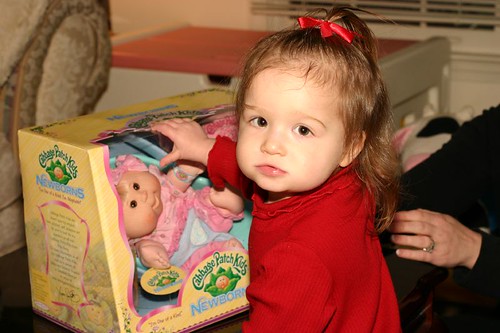5th Sunday of Easter (C)
Picture: cc Brian Leon
My dear friends, have you ever noticed how quickly things age when you’re a child? Imagine that I’m five or six years old. And I come across a brand new toy that I like. So I pester my parents to buy it for me. What happens when they do? Well, I may play with it happily for a day or two. But, very soon after that, I’ll grow tired of it. A newer toy will catch my eye. And I’ll pester my parents to buy that for me. While the earlier one is cast away. Forgotten. Left in some dark corner of my room. Until I’m scolded for being untidy. And made to clean up the mess I’ve made. It’s actually quite amazing, isn’t it, sisters and brothers? How, for a child, something new very quickly grows old. A treasured gift becomes a tiresome burden.
And yet, to be honest, don’t we see this in us grownups as well? Especially those of us who have the money to buy grownup toys. Haven’t we noticed, in this consumer society of ours, how quickly new things grow old? And old things become obsolete? How soon, for example, we need to find a way to discard our iPhone 5 or 6. So as to make way for a brand new iPhone 6s?
Which is bad enough, if we were talking only about toys and gadgets. What’s worse is that we often do the same with people and relationships. Very quickly, don’t we grow tired, not just of cars and computers, but also of husbands and wives? Increasingly, in this ultra-modern society of ours, don’t we see employees getting laid off? Marriages dissolved? Domestic help abused? The elderly neglected? What to do? How to renew the old? To refresh the obsolete? To change tiresome burdens back into treasured gifts? This, my dear friends, is the crucially important question that our Mass readings and prayers help us to ponder today.
We see this most clearly in the second reading, where John describes his vision of a new heaven and a new earth. A marvellous place, where there will be no more death, and no more mourning or sadness. For God is making the whole of creation new. What does this tell us, sisters and brothers? What do we learn about renewal and refreshment? At least three things. First, we learn that renewal is not something that happens at our initiative, but God’s. It is God who renews. Second, we learn that God brings this about simply through the power of God’s presence. God chooses to make his home among us. And third, we learn that God’s presence is consoling. It wipes away all tears from our eyes.
God’s initiative. God’s presence. God’s consolation. This is how renewal takes place.
But God also chooses to work through human instruments. Like Paul and Barnabas, in the first reading. Having reached the outer limit of their missionary journey, Paul and Barnabas make a U-turn. They go back through the same places they had visited earlier. Even places where they had encountered persecution. But why? Why don’t they take a safer path? The answer is simple. Paul and Barnabas choose to revisit places like Lystra, and Iconium, and Antioch, in order that they may renew and refresh the young Christian communities there. And, as in the second reading, they do this in a very particular way.
Through the ministry of encouragement. Of consolation. By putting fresh heart into the disciples. By encouraging them to persevere in the faith. By reminding them that we all have to experience many hardships before we enter the kingdom of God. But that’s not all. Not only do they refresh the hearts of individuals with sound teaching. Paul and Barnabas also renew whole communities, by appointing worthy leaders. Representatives of God on earth. Images of God’s consoling presence at the heart of God’s people. Sound teaching and solid leadership. These are the ways by which Paul and Barnabas bring renewal. First and above all, through the ministry of encouragement. Putting fresh heart into individuals and communities.
All of which should help us to better appreciate what Jesus is doing in the gospel. Something that is not always easy for us to understand. For, at first glance, it may seem that Jesus is placing a terrible burden on the shoulders of his disciples. Love one another; just as I have loved you. To love as Jesus loves. This is how we usually understand this commandment. Simply to love as Jesus loves. And how does Jesus love? By laying down his life for everyone. Including the people who denied and betrayed him. Even the people who tortured and crucified him. What could be more difficult and burdensome than that?
But is this really how the love commandment is meant to be understood? As a terrible burden? Something that we have heard so many times that it has become old in our ears. And heavy on our hearts. Since we cannot bring ourselves to fulfil it? Or could there be another meaning? Something that we begin to appreciate by paying attention to two words that Jesus uses. The word give and the word new. I give you a new commandment.
Before love is a command, it is first offered to us as a gift. Something that we must receive, before we can offer it to others. And it’s important to remember how the disciples experienced this gift at the Last Supper. In chapter 13 of John’s gospel, before Jesus gives his disciples the love command, he first gives them something else. In verse 15, he says to them, I have given you an example… By which he refers, of course, to his washing of their feet. Something that we ourselves experienced on Maundy Thursday. Jesus, our Lord and Master, refreshes our feet with water. Just as he renews our hearts with his blood. This is how love is first experienced. Not as a terrible burden. But as a precious gift. Given to us by God in Christ.
And this is also what makes the commandment new. It is something that is first done to us. And for us. And in us. For the command is not simply to love as Jesus loves. But to love as Jesus loves us. As Jesus loves me. And I can do that, only by first allowing myself to receive his love. By having my feet washed by his hands. My heart cleansed by his blood. Isn’t this what Easter is about? Continually allowing Jesus to renew and to refresh us. With the water of baptism. And the blood of the Eucharist. So that we, in our turn, can reach out to renew and refresh our world.
It is often said that, here in Singapore, ours is an aging society. And it’s probably true. But perhaps it is also true that ours is a very childish society. A society that tends to allow new things to grow old too quickly. And that transforms precious gifts into terrible burdens too easily. A society that needs the renewal and refreshment that is the precious gift of Easter.
I’m reminded of this prayer of St. Claude La Colombiere:
O God, what will you do to conquer
O God, what will you do to conquer
the fearful hardness of our hearts?
Lord, you must give us new hearts,
tender hearts, sensitive hearts,
to replace hearts that are made of marble and of bronze.
Lord, you must give us new hearts,
tender hearts, sensitive hearts,
to replace hearts that are made of marble and of bronze.
You must give us your own Heart, Jesus.
Come, lovable Heart of Jesus.
Place your Heart deep in the center of our hearts
and enkindle in each heart a flame of love
as strong, as great, as the sum of all the reasons
that I have for loving you, my God.
Come, lovable Heart of Jesus.
Place your Heart deep in the center of our hearts
and enkindle in each heart a flame of love
as strong, as great, as the sum of all the reasons
that I have for loving you, my God.
O holy Heart of Jesus, dwell hidden in my heart,
so that I may live only in you and only for you,
so that, in the end, I may live with you eternally in heaven.
Amen.
so that I may live only in you and only for you,
so that, in the end, I may live with you eternally in heaven.
Amen.
Sisters and brothers, what must we do to allow our Crucified and Risen Lord to continue to refresh and to renew our hearts today?

